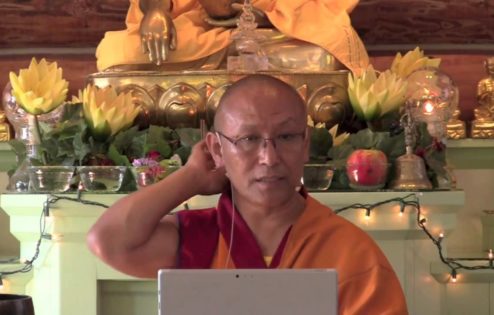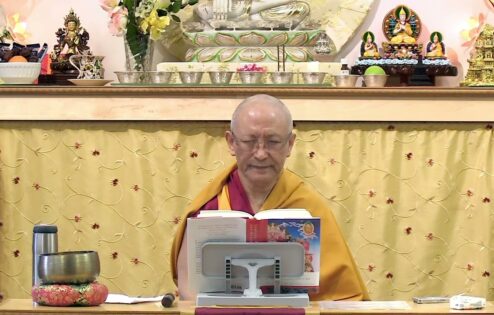Geshe Tenzin Chodrak (Dadul Namgyal)
Geshe Tenzin Chodrak (Dadul Namgyal) is a prominent scholar who earned a Geshe Lharampa degree in Buddhism and Philosophy from Drepung Monastic University in 1992. He also holds a Master’s degree in English Literature from Panjab University in Chandigarh, India. Author of several books on Buddhism, Geshe Tenzin Chodrak was also professor of Philosophy at Central Institute of Higher Tibetan Studies in Varanasi, India for seven years. In addition, he has been the Spiritual Director of Losel Shedrup Ling Tibetan Buddhist Center, Knoxville, USA. Due to his facility in both Tibetan and English, he is interpreter and speaker for numerous conferences exploring the interface of Buddhism with modern science, Western philosophy, and psychology and other religious traditions on both a national and international level. Geshela’s language ability has also enabled him to serve as an auxiliary language translator for His Holiness and Dalai Lama throughout the world. As a published author and translator, Geshela’s credits include a Tibetan translation of His Holiness the Dalai Lama’s Power of Compassion, a language manual, Learn English through Tibetan, and a critical work on Tsongkhapa’s Speech of Gold. Geshela lived and worked at Drepung Loseling Monastery in Atlanta, Georgia, where he prepared a six-year curriculum in Modern Science to be used in Tibetan monasteries and nunneries. Geshe Tenzin Chodrak is also on the Sravasti Abbey Advisory Board.
Featured Series

Madhyamaka through Metaphors with Geshe Tenzin Chodrak (Dadul Namgyal) (2015-17)
Teachings by Geshe Tenzin Chodrak (Damdul Namgyal) on Middle Way philosophy given at Sravasti Abbey.
View Series
Practicing the Six Perfections with Geshe Geshe Tenzin Chodrak (Damdul Namgyal) (2018)
Geshe Tenzin Chodrak (Damdul Namgyal) teaches on the six perfections of generosity, ethical conduct, fortitude, joyous effort, concentration, and wisdom at Sravasti Abbey.
View Series
Tenets with Geshe Tenzin Chodrak (Dadul Namgyal) (2020)
Teachings on Buddhist tenet systems by Geshe Tenzin Chodrak (Dadul Namgyal) given at Sravasti Abbey in 2020, with reviews by Venerables Thubten Chodron and Sangye Khadro.
View Series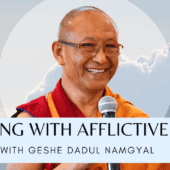
Working With Afflictive Minds with Geshe Tenzin Chodrak (Dadul Namgyal)
A series of weekend teachings on how to identify and overcome the afflictions given at Sravasti Abbey from June to August 2023.
View SeriesFeatured Posts

Why is bodhicitta so powerful?
How bodhicitta encapsulates numerous agents of transformation ...
View Post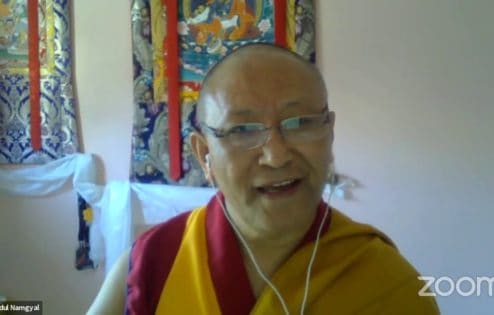
Buddhist tenet systems: What is the person?
The tenet system as a ladder of philosophical maturation. How ...
View PostView Posts
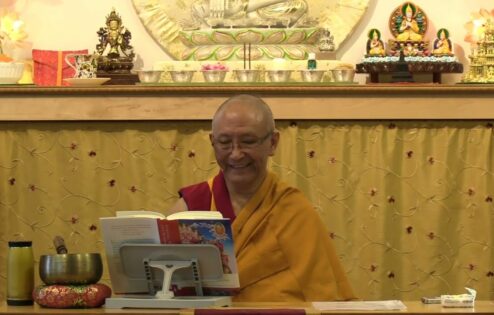
Equality of samsara and nirvana
Describing the meaning of "one taste in emptiness", beginning the section, "The Equality of Samsara…
View Post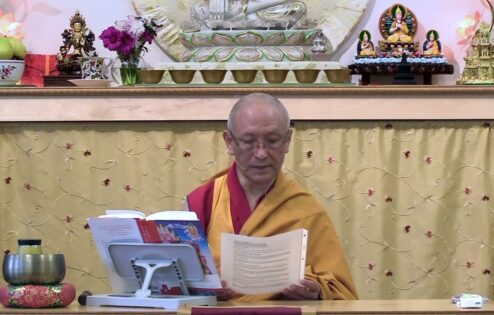
Dormant and manifest consciousnesses
Explaining dormant and manifest aspects of rigpa and subtlest clear light mind, completing the section…
View Post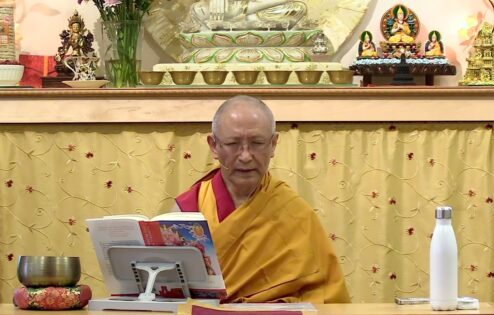
Unborn clear light mind
Comparing how the primordially pure mind is understood in the New Translation School (clear light…
View Post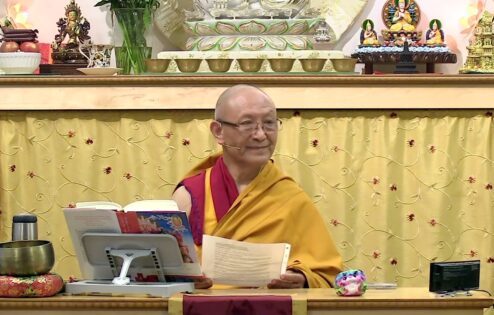
Primordially pure awareness
Explaining the meaning of "primordially pure" and our need to interweave the understanding of emptiness…
View Post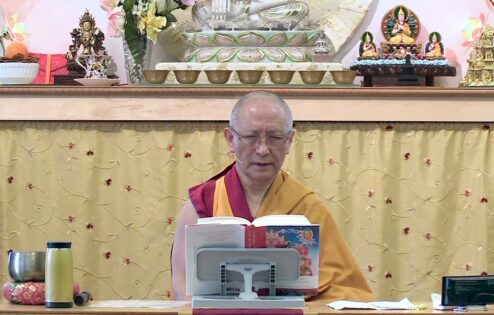
Afflictions and the nature of the mind
Explaining how the mind is different from mental factors, teaching from the next section, “Afflictive…
View Post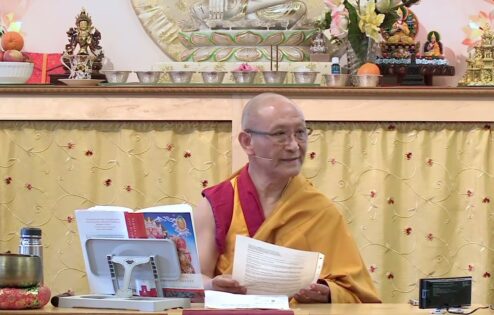
Reflection on cultivating excellent qualities
Leading a discussion on points 1-3 in the reflection at the end of the section…
View Post
Excellent qualities can be enhanced
Explaining how it is possible to cultivate the mind’s excellent qualities limitlessly in the section…
View Post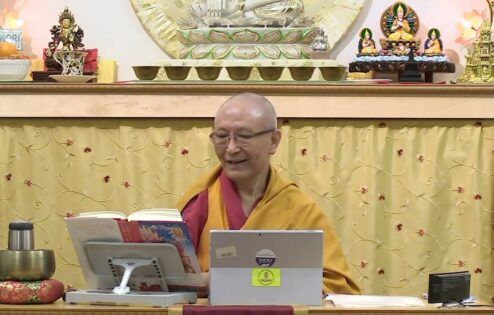
Excellent qualities can be built up cumulatively
Explaining how the mind can be habituated to excellent qualities that can be built up…
View Post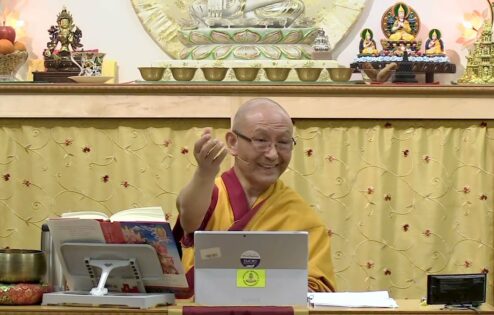
Excellent qualities can be cultivated limitlessly
Describing the clear and cognizant nature of the mind as the stable basis for developing…
View Post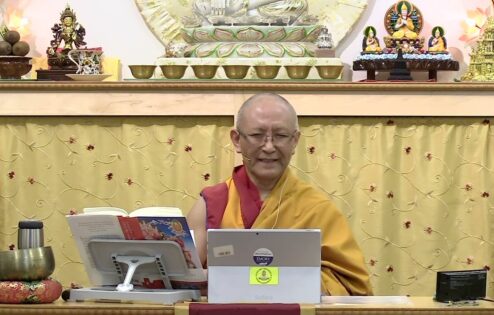
Nature of the mind
Explaining how the nature of the mind is free from pollutants, such that good qualities…
View Post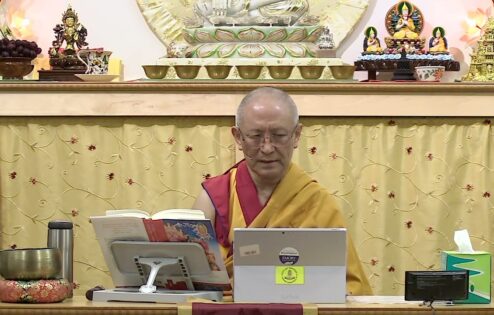
Understanding ignorance
Explaining how afflictions are rooted in ignorance and how we can eradicate ignorance, continuing the…
View Post